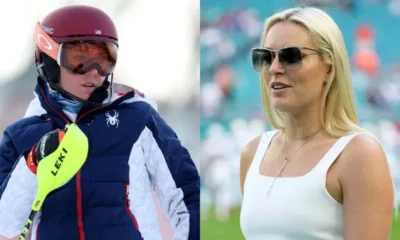Blog
Mark Pope Advocates for Key Rule Changes in Men’s College Basketball
University of Kentucky head coach Mark Pope, known for his thoughtful approach to the game and his openness to innovation, has recently expressed a desire to see significant rule changes in men’s college basketball. As the landscape of college athletics continues to evolve rapidly—spurred by shifts in NIL regulations, the transfer portal, and overall player empowerment—Pope’s suggestions are part of a broader conversation on how to modernize the sport while preserving its essence.
In recent interviews and press conferences, Pope hinted at a few particular changes he believes would enhance the pace, strategy, and viewer experience of NCAA men’s basketball. Though he did not present an exhaustive list, two ideas stood out: implementing a wider lane and adopting the NBA-style defensive three-second rule.
Widening the Lane: Encouraging Offensive Spacing and Creativity
One of the most discussed rule changes Pope favors is the widening of the lane, or “paint,” to better align with international and NBA standards. Currently, the NCAA uses a 12-foot-wide lane, compared to the NBA and FIBA’s 16-foot version.
Pope believes that widening the lane would reduce congestion under the basket, open up driving lanes, and create more opportunities for dynamic offensive play. “Spacing is everything in the modern game,” Pope remarked during a coaching clinic. “If you want to empower skilled players, you have to give them room to operate.”
Critics of the current NCAA lane dimensions often point out how defensive schemes, especially zone defenses, can collapse into the paint, stifling offensive movement and creativity. With more space, guards could more effectively penetrate, bigs could find cleaner post touches, and teams could spread the floor—mirroring the offensive fluidity of the NBA and international basketball.
Defensive Three-Second Violation: Keeping the Paint Active
Pope has also suggested exploring the introduction of the defensive three-second violation—a rule long used in the NBA to prevent defenders from camping in the paint without guarding an opponent. In college basketball, defenders can currently remain in the key indefinitely as long as they are not violating the standard three-second offensive rule.
Incorporating a defensive three-second rule would fundamentally alter how teams defend the rim. Pope and others argue that this change would reduce the dominance of help defenders in the low post, thereby promoting more one-on-one matchups and cutting down on stagnant, overly physical play near the basket. This would be particularly impactful against zone defenses, which often rely on stationing shot-blockers near the rim to alter or deter penetration.
“It’s about rewarding offensive initiative and discouraging passive defense,” Pope explained. “Let defenders make choices: stay active and engaged or give up space.”
Balancing Tradition with Innovation
Of course, any conversation around rule changes in college basketball must consider the deep traditions of the game and the unique identity it has carved out over decades. Many fans and coaches remain wary of adopting too many professional-style rules, fearing that it could dilute the distinctiveness of college hoops. However, proponents like Pope argue that innovation is not about imitation—it’s about improvement.
Pope’s willingness to entertain these changes speaks to his broader coaching philosophy, which blends respect for the game’s history with an eye toward its future. As a former Kentucky Wildcat himself and now the program’s head coach, his voice carries weight in the national dialogue.
The Road Ahead
While these rule changes are not imminent, Pope’s comments add momentum to ongoing discussions within the NCAA’s Rules Committee and coaching circles. In recent years, we’ve already seen some moves toward modernization, such as the adoption of the 30-second shot clock and the extension of the three-point line.
Ultimately, whether or not the NCAA adopts these proposed changes will depend on a variety of factors—including input from coaches, athletic directors, television partners, and the players themselves. But if voices like Mark Pope’s continue to advocate for thoughtful evolution, fans could very well see a reimagined version of college basketball in the near future—one that retains its soul while embracing the strategic and aesthetic possibilities of the modern game.
-

 Blog2 weeks ago
Blog2 weeks agoPat Kelsey sends a strong three-word fiery message to the Louisville basketball’s team after their Cardinals 14th win…
-

 Blog2 weeks ago
Blog2 weeks agoMikaela Shiffrin responds to cross-country skier Jessie Diggins’ letter following her failure to secure a solitary podium finish at the FIS Nordic Worlds
-

 Blog3 months ago
Blog3 months agoNetflix releases “The Underdog,” a much-anticipated documentary about Drew Brees. slated for publication on the 25th
-

 Blog2 months ago
Blog2 months agoBehind the Turns: Netflix’s Upcoming Documentary on Mikaela Shiffrin’s Fights, Fears, and Love
-

 Blog2 weeks ago
Blog2 weeks agoWomen’s Slalom Run 1 at the FIS Alpine Skiing World Cup: Are
-

 Blog2 months ago
Blog2 months agoFederica Brignone: “I’m fine, but my return to skiing is far off.”
-

 Blog2 months ago
Blog2 months agoAlice Cooper: From Fragile Boy to Shock Rock Icon—Netflix Unmasks the Nightmare
-

 Blog2 weeks ago
Blog2 weeks agoMikaela Shiffrin sends a two-word message to Lindsey Vonn as she became the oldest woman on the skiing podium
